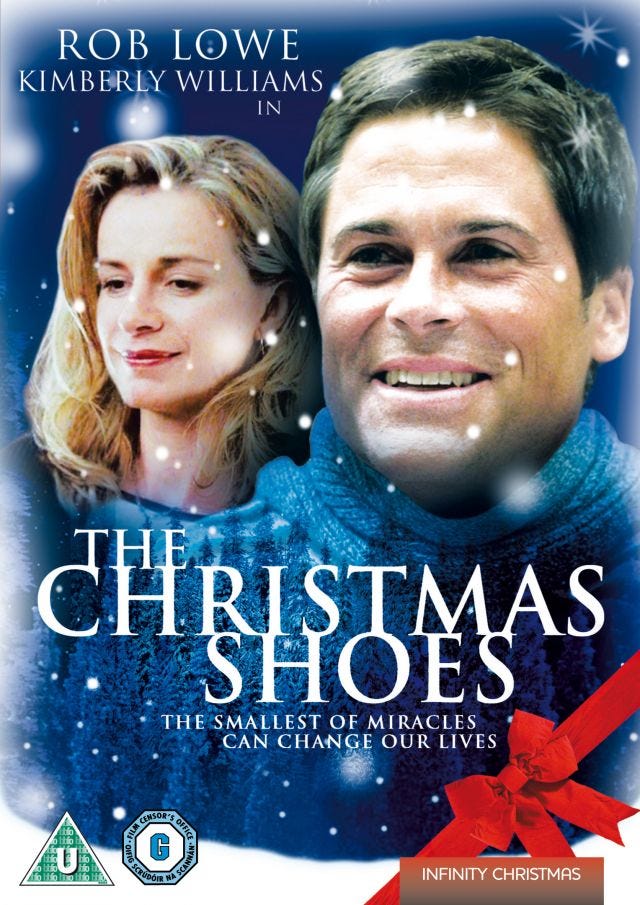So What, Who Cares (vol 1, issue 46) Why it's in your best interest to be generous
Hello, and welcome to the downward slide on this first really dark week of November. It's a weird yard-decoration period, right between jack o'lantern season and Christmas lights season. Maybe it's time to lobby for Thanksgiving lights? Inflatable turkeys bathed in the eyeball-searing rays of a floodlight? (Or maybe we should pay attention to the growing body of research linking our increasingly-light nights with sleep disorders, diabetes, obesity, and cancer and make November the National Lights Out Month?) ANYWAY. Debate topic for another time!
*

You, the readers, decide. I'd like to do something special in So What, Who Cares? for the month of December, and I want your vote on what I do.
Option number one: I have always admired my friend Mary-Lynn's "SFist cares ..." work for SFist, where she profiled a different charity each week so people could see who was working to make the world a better place and how they could help. So I could link to a different nonprofit daily -- you know, in case you're moved by messages of peace and goodwill and want to translate those feelings into actions.
Option number two: I can feature a piece of holiday-related pop culture daily. It won't all be rah-rah holidays -- some of my favorite works are profoundly curmudgeonly or irreverent (witness The Incomparable's holiday music podcast from last year)
So! Tell me which you'd prefer. I could honestly go either way but would love your feedback. You decide, I write! Weigh in via email or Twitter. I'll take your votes through Friday, November 7.
*
Some people are wired for extra empathy and altruism (vol 1, issue 19), and it may make them happier: Christian Smith and Hillary Davidson, authors of The Paradox of Generosity, write that:
We find a strong and highly consistent association between generous practices and various measures of personal well-being like happiness, health, a sense of purpose in life, and personal growth.
While greater well-being can encourage generosity, practices of generosity also enhance well-being. The causal mechanisms we identify involve everything from reinforcing positive emotions to developing a sense of self-efficacy to expanding social networks to increasing physical activity.
The piece goes on to identify some reasons why people deliberately choose not to practice generosity in either their time or their material goods, and notes that folks who focus most on obtaining and preserving their own "material well being and security" were often living lives of "apathy riddled with anxiety."

So what? As with the notion that people are hard-wired for resilience (vol 1, issue 13) or courage (vol 1, issue 45), this is another example of people negotiating the relationship between hard-wired biological traits and conscious behavior choices. Not everyone is going to be wired to be altruistic -- but people can choose to act generously and reap benefits like lowered risks of depression and anxiety.
Who cares? Happiness is a complex state. And while some measures of money and happiness link the two very strongly, there's a growing body of research suggesting that actual, long-term contentment is strongly linked to feeling as if one's life has purpose and meaning. Being generous -- having empathy and acting under the idea that your contributions will make the world a better place -- can boost your mood and the quality of your life, as it extends your life.
One of the most crucial points in this research: the motivation to be generous has to be intrinsic, not externally motivated. Children who are coerced into generous behavior -- "Give your brother your toy, it'll make him feel better" -- are less likely to act generously of their own volition, while children who are permitted to choose when to be generous are more likely to be consistently generous.
*

Modern offices are awful, and cubicles are the most terrible aspect of them. A recent University of Sydney study showed that 60% of cubicle workers and half of all partitionless people indicating their total lack of control over sound (what they heard and what other people heard) as their biggest frustration; perhaps not coincidentally, noise distraction in this environment was pegged to a drop in productivity.
So what? The noise in an office can actually spike heart rates and cortisol, as well as make workers much more distractible. Cubicles with high walls are generally the worst -- people inside them think they're private but no -- sound travels. Workspaces with low to no walls and walled/doored rooms for noisy stuff and/or the things that require a bit of privacy are thought to be the healthiest.
Who cares? Anyone who needs to make the case to their boss, "If I don't get to wear headphones on the job, I won't get anything done."
Bonus reading: We'll tackle the incredibly gendered aspects of lifehacking in a future issue, but I want to share this suggestion of "elegance hacking," wherein "I want to ritualize ease, beauty, and enjoyment in my work. I want to make elegance easier to achieve, more often, and more regularly. I’d like elegance to just be there when life is feeling inelegant." It's a great reminder that you can do a few small things to start or wrap up your work day and feel a little happier while you do.
*

Your pop culture note of the day: Is more of a cute-animal note. You will recall that So What, Who Cares is firmly in the pro-otter camp (vol 1, issue 20), so imagine my joy at seeing this photo. I wish little Pup 681 all the best as she continues to grow. The Monterey Bay Aquarium was instrumental in fattening her up, and now she's off to Shedd Aquarium in Chicago.
*
Did you miss an issue of So What, Who Cares? The archive is here. Also, there is now a topic index that tells you what was in each issue. If you're like, "I remember there was an issue with a gratuitious picture of The Rock, but when ...?" -- well, now you can find it. (It was September 4, 2014, btw.)
As always, I welcome your feedback and suggestions via email or Twitter. Always let me know what you think about So What, Who Cares? If you really like it, tell a friend to subscribe.

